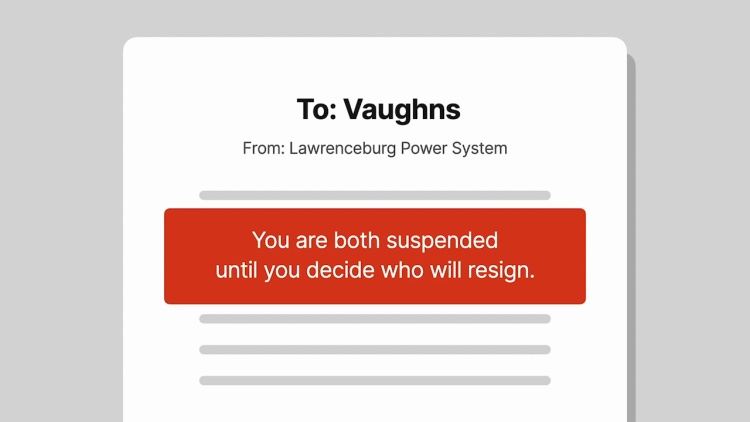Vaughn v. Lawrenceburg Power System
United States Court of Appeals for the Sixth Circuit
269 F.3d 703 (2001)

- Written by Denise McGimsey, JD
Facts
Lawrenceburg Power System (LPS) (defendant), a Tennessee state utility company, had an anti-nepotism policy that provided, among other things, that in the event two LPS coworkers married, one must resign. Keith and Jennifer Vaughn (plaintiffs) both worked for LPS. After becoming engaged in September 1997, they were reminded of the policy and told that one of them would need to resign before they married. If they remained unmarried, however, both could continue to work for LPS. They did not wish to remain unmarried because Jennifer was pregnant with the couple’s child. The Vaughns married in January 1998 without either resigning. They were both suspended from the workplace until February 9, 1998, during which time they were to decide who would resign. On Friday, February 6, Keith informed LPS that Jennifer would resign. She did not return to work that following Monday, February 9, but nor did she provide a letter of resignation. Keith was fired by LPS that day. The Vaughns sued LPS under 42 U.S.C. § 1983 alleging a violation of their constitutional right to marry, and the Tennessee Human Rights Act (THRA), alleging Keith's termination was impermissible retaliation for opposing a discriminatory practice. The district court granted summary judgment in favor of LPS, and the Vaughns appealed.
Rule of Law
Issue
Holding and Reasoning (Boggs, J.)
What to do next…
Here's why 899,000 law students have relied on our case briefs:
- Written by law professors and practitioners, not other law students. 47,000 briefs, keyed to 994 casebooks. Top-notch customer support.
- The right amount of information, includes the facts, issues, rule of law, holding and reasoning, and any concurrences and dissents.
- Access in your classes, works on your mobile and tablet. Massive library of related video lessons and high quality multiple-choice questions.
- Easy to use, uniform format for every case brief. Written in plain English, not in legalese. Our briefs summarize and simplify; they don’t just repeat the court’s language.





